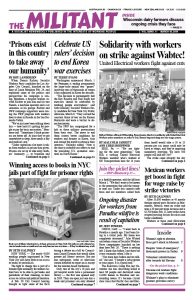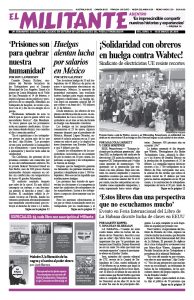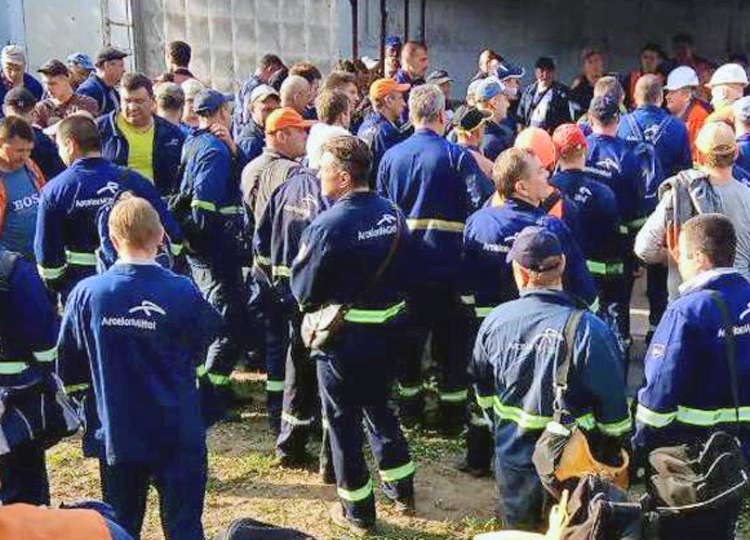Rail workers on Ukrainian Railways began a work-to-rule protest last May and continue to speak out against their low wages, deteriorating working conditions and the dangerous state of the trains. The state-owned company is the 12th largest railroad system in the world, with some 263,000 workers running both freight and passenger service.
Freight traffic, which accounts for 80 percent of the company’s income, has been significantly disrupted by the attacks against Ukraine by Russia’s capitalist rulers since the popular Maidan mobilizations in 2014 brought down the pro-Moscow regime of Viktor Yanukovych. Freight shipments have fallen by more that 25 percent.
Mechanical breakdowns; lack of radio transmissions; no heat or air-conditioning in the cabs; broken windows, seats, and doors; and instruments that leak oil that can catch fire are just some of the problems workers face. Many repair shops have no parts, and workers on meager wages are buying parts and tools with their own money.
Ukrainian rail workers receive low wages, with the majority on minimum wage, 3,723 hryvnya per month ($137). Many work overtime to keep up with the cost of living. Since 2014 the number of workers has fallen by 30 percent.
“A tired driver team can make mistakes which can lead to serious accidents,” assistant engineer Oleksandr Skiba, head of Darnytsya depot’s Free Trade Union of Rail Workers (VPZU), told opendemocracy.net reporter Alexey Arunyan. “Trains regularly carry tons of flammable freight or chemicals — nuclear fuel, petrol, gas, ammonia or chloride. An accident with this kind of freight can lead to serious environmental and human consequences.”
Last May’s work-to-rule action ran on and off at many depots and the union has grown. They faced threats from company bosses, cops and other government functionaries — including some workers called in by military recruiters and threatened with being sent to the war zone. Workers refused to take out trains that were unfit to operate, bringing some depots virtually to a halt. They demanded a wage raise, a return of government-cancelled pensions and a guarantee of safe working conditions. Although they did not win their demands, the VPZU got stronger and more confident.
Vyacheslav Fedorenko, an engineer who heads up the independent union at Kryvyi Rih, a center for iron ore mining and steel production, is still following work-to-rule and refuses to handle engines that have safety violations. “You have to understand, before May 14, 2018, no one raised their heads. People were treated like cattle, and they silently agreed to it,” Fedorenko told Arunyan. “And then suddenly we remembered: ‘We’re citizens. I believe that civil society was born in our depot on this day.’”
The action was undermined by the refusal of the successor to the old Soviet railway union, the Union of Railway and Transport Construction Workers, to which many rail workers in Ukraine still belong, to participate. It slandered the work-to-rule as a “destructive way of blocking freight transport.” The VPZU is affiliated with the Confederation of Free Trade Unions of Ukraine.
Three weeks after workers in Kremenchuk ended their work-to-rule protest Sept. 1, engineer Yry Kachan died when a fire broke out in the cab of his malfunctioning locomotive. “He didn’t die, he didn’t perish, he was killed!” Alexander Petrov, a Kremenchuk VPZU leader, said in a message broadcast on YouTube. “They killed him with their lack of responsibility, their lack of organization.”
Protests across Ukraine have taken place by shipyard workers, city transit operators, and miners in the coal, iron ore and uranium industries. These actions have wrested some concessions from the bosses and the government, and the independent trade union movement has gotten stronger.


